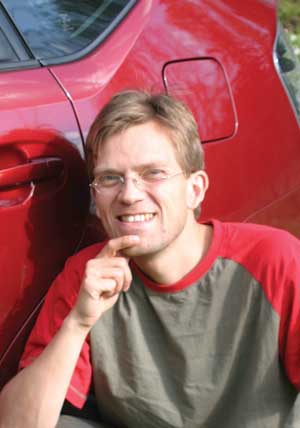Sweden marks ethanol milestones

January 10, 2008
BY Anduin Kirkbride McElroy
In October, the 1,000th E85 station opened in Sweden, and by the end of November, the number of registered ethanol cars was expected to surpass 80,000, according to Sweden-based environmental vehicle organization Gröna Bilister, the Swedish Association of Green Motorists. "The first 100 E85 stations took 10 years," said Mattias Goldmann, editor and publisher of the organization's quarterly newsletter Traffic and the Environment. "Now 100 stations take two months."
Goldmann said Sweden also set a new record for environmental cars, which are defined as very fuel efficient or capable of running on high blends of renewable fuel. In October, 6,047 environmental cars were registered, which represented 21 percent of all sales. "That is 121 percent more than in the month of October 2006," Goldmann said, adding that through October, environmental cars represented 16.7 percent of total new car sales, compared with 12.7 percent in the same period of 2006.
Ethanol-compatible cars have been the top-selling environmental cars, according to Goldmann. Through October, the most common environmental car purchased in 2007 was the Saab 9-5 BioPower, which sold 7,680 cars. The Ford Focus Flexifuel was second with 6,232 cars sold. Third was the new model of Saab 9-3 BioPower, selling 5,044. The fourth most common was the Volvo V50 Flexifuel at 3,903 cars sold. Rounding out the top five is the only non-ethanol car on the list: the Toyota Aygo. The ethanol-compatible cars run on 75 percent ethanol in the winter and E85 the rest of the year, Goldmann said.
The popularity of ethanol cars is partly due to the wide availability of fuel. "By law, every major petrol station has to carry a renewable fuel," Goldmann told EPM. "They were given liberty to choose whatever fuel they want to, but it's cheaper infrastructure to put in E85 rather than biogas."
He continued, "The market is growing very fast, but if you want to enter the market, you need to show a big reduction in carbon emissions. Most of American ethanol will not qualify—not only in Sweden, but the European Union will soon have minimum standards for ethanol that will demand a 40 percent decrease in carbon emissions compared to petrol. I challenge producers to produce a product that is energy and climate-change efficient. Otherwise, the EU market will be closed to them."
Seventy percent of ethanol used in Sweden comes from Brazilian sugarcane, and the rest is produced in Sweden from paper-mill waste.
Goldmann said Sweden also set a new record for environmental cars, which are defined as very fuel efficient or capable of running on high blends of renewable fuel. In October, 6,047 environmental cars were registered, which represented 21 percent of all sales. "That is 121 percent more than in the month of October 2006," Goldmann said, adding that through October, environmental cars represented 16.7 percent of total new car sales, compared with 12.7 percent in the same period of 2006.
Ethanol-compatible cars have been the top-selling environmental cars, according to Goldmann. Through October, the most common environmental car purchased in 2007 was the Saab 9-5 BioPower, which sold 7,680 cars. The Ford Focus Flexifuel was second with 6,232 cars sold. Third was the new model of Saab 9-3 BioPower, selling 5,044. The fourth most common was the Volvo V50 Flexifuel at 3,903 cars sold. Rounding out the top five is the only non-ethanol car on the list: the Toyota Aygo. The ethanol-compatible cars run on 75 percent ethanol in the winter and E85 the rest of the year, Goldmann said.
The popularity of ethanol cars is partly due to the wide availability of fuel. "By law, every major petrol station has to carry a renewable fuel," Goldmann told EPM. "They were given liberty to choose whatever fuel they want to, but it's cheaper infrastructure to put in E85 rather than biogas."
He continued, "The market is growing very fast, but if you want to enter the market, you need to show a big reduction in carbon emissions. Most of American ethanol will not qualify—not only in Sweden, but the European Union will soon have minimum standards for ethanol that will demand a 40 percent decrease in carbon emissions compared to petrol. I challenge producers to produce a product that is energy and climate-change efficient. Otherwise, the EU market will be closed to them."
Seventy percent of ethanol used in Sweden comes from Brazilian sugarcane, and the rest is produced in Sweden from paper-mill waste.
Advertisement
Advertisement
Advertisement
Advertisement
Upcoming Events





